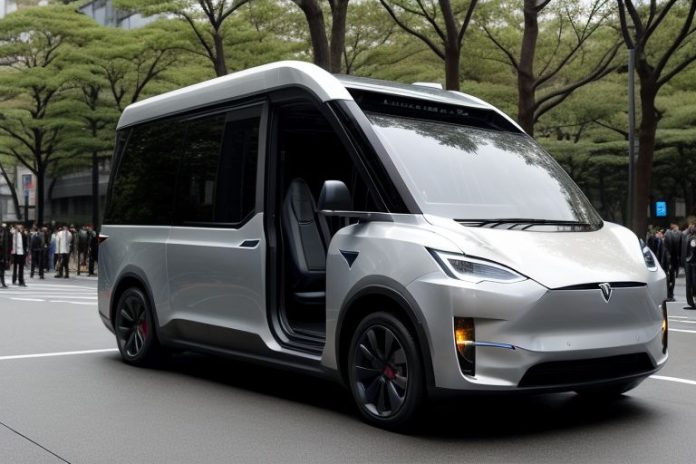In an unprecedented press event held in Tokyo today, the mastermind of Tesla, Elon Musk, introduced two new electric cars to the world market – the Cybhercab and the Robovan. The Cybercab, drawing on ride-sharing services in particular, is expected to go into production in 2026 with a base price of below $30,000. This decision is in line with Tesla’s plan to capture more market share across Asia and Japan, particularly as the market there grows steadily for new modes of transport. Musk noted that these cars are a step closer to a fully autonomously operated urban transport system.
The Cybercab design is incorporated to fit several passengers and, at the same time, offer a comfortable ride with the aid of AI. Tesla is a sustainable company, as seen in the Model S that uses sustainable material and energy efficient systems. Speaking with reporters after the event, Musk stated that cybercabs would help not only minimize traffic jams but also decrease the level of carbon dioxide emissions substantially, creating cleaner cities. The entry of these vehicles is anticipated to artificially cab services and transform mobility in the urban area.
That’s why, together with the Cybercab, there is another concept – the Robovan – which will change the logistics of cities and delivery services. This car looks awesome and has highly advanced automation technology, which makes this vehicle to drive on complex urban environment roads. Musk also pointed out the applicability of the concept, saying that the Robovan could be used in a range of industries, such as e-commerce delivery services and food delivery services, hence improving efficiency and reducing cost. With urban life across the globe requiring delivery solutions, Tesla’s Robovan could be the solution by linking up logistics solutions.
Mr. Musk expressed his ideas about One World Battery at a time when Japan was already funding smart city projects and driverless cars. Both the Japanese government and automotive manufacturers are aiming to introduce self-driving cars into public transport by the year 2030. With the introduction of such innovative vehicles in Tokyo, it means that Tesla wants to ensure that it is among the leaders in the market for self-driving cars.
Industry opinion has been resoundingly positive — many observers hailed Tesla’s preservative vision. As for the Japanese market, Fumihiro Inoue, an IT analyst in Tokyo, added: “Tesla’s introduction of these self-driving cars to consumers may serve as the trigger that stimulates the further progress of both Japanese auto market. He feels that this transition will prompt Japanese manufacturers to step up their innovation in automation technologies.
However, it is not all plain sailing for Tesla as it has to overcome the Japanese regulatory structure as well. The firm will also require strong cooperation and interaction with the local authorities to meet the regulatory requirements for the safe use of AVs. Also, consumer trust in self-driving technology will play an important role in the wide spread of the technology. Musk stated these challenges but defended car makers, saying that since Tesla has been tested and proven capable of innovating, they would surmount these challenges.
In this regard, Tesla has ambitions to enter into some contracts with local higher technology companies and universities for research cooperation. It aims to improve vehicular dynamics while ensuring the development and sustainability of an ecosystem of autonomous systems in Japan. Through fastballing and power quality conversion of local content, Tesla believes it will provide a better specification of cars to consumers in Japan as well as advance the country’s technology.
Thus, the presentation of the Cybercab and Robovan by Musk is considered the key step for Tesla to enter the new market of autonomous vehicles in Japan. As seen with its production targets and low prices for its vehicles, Tesla is equipped to disrupt personalized transport systems as it seeks ecological conservation. With metropolitan areas now seeking out smarter solutions to transportation networks, Tesla’s AV could hold the key to sustainable city development.

